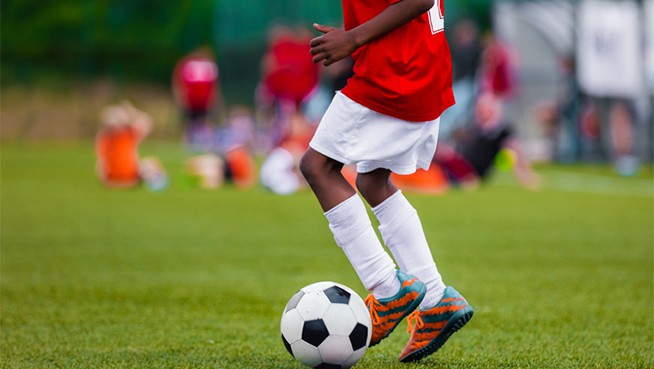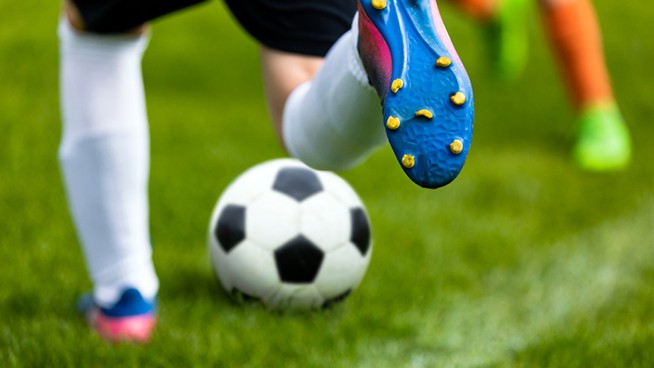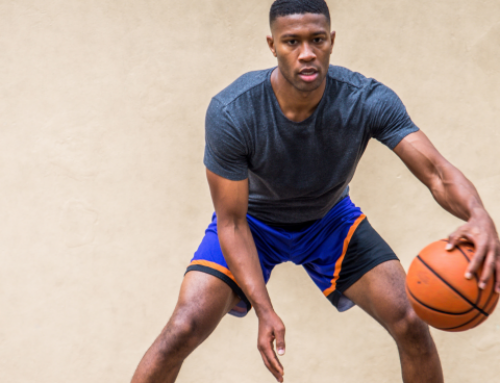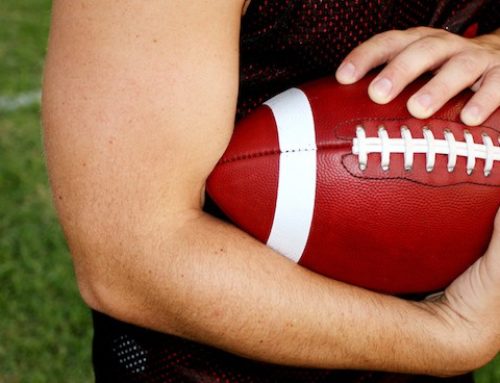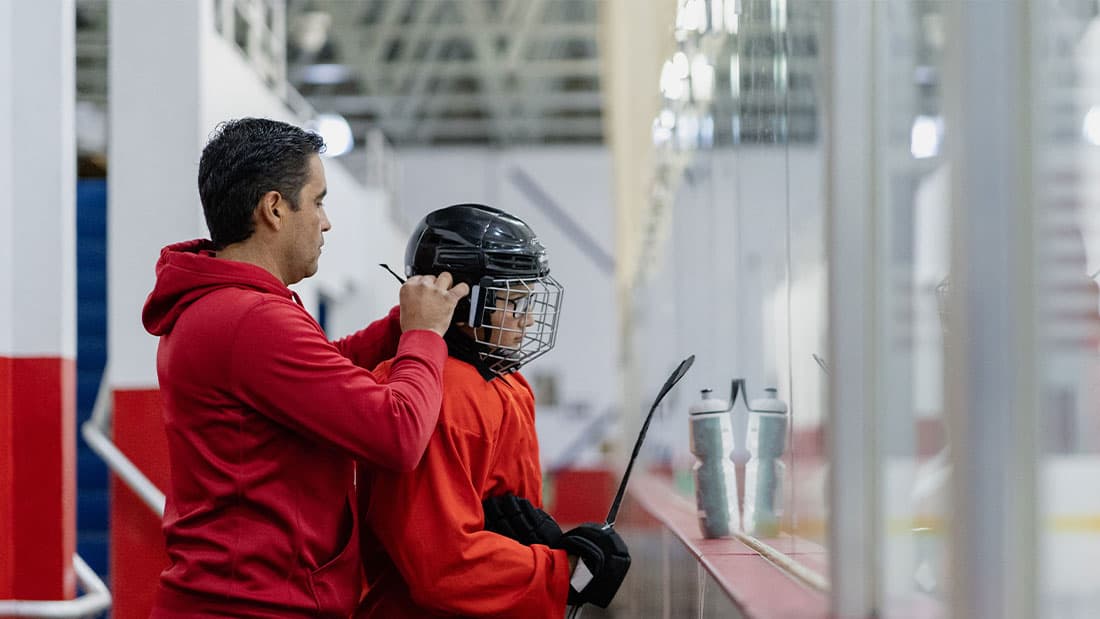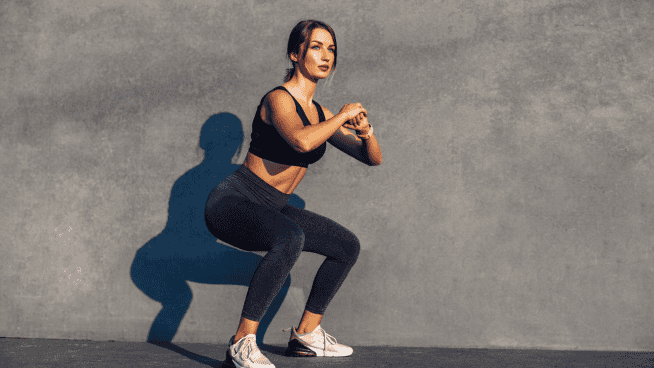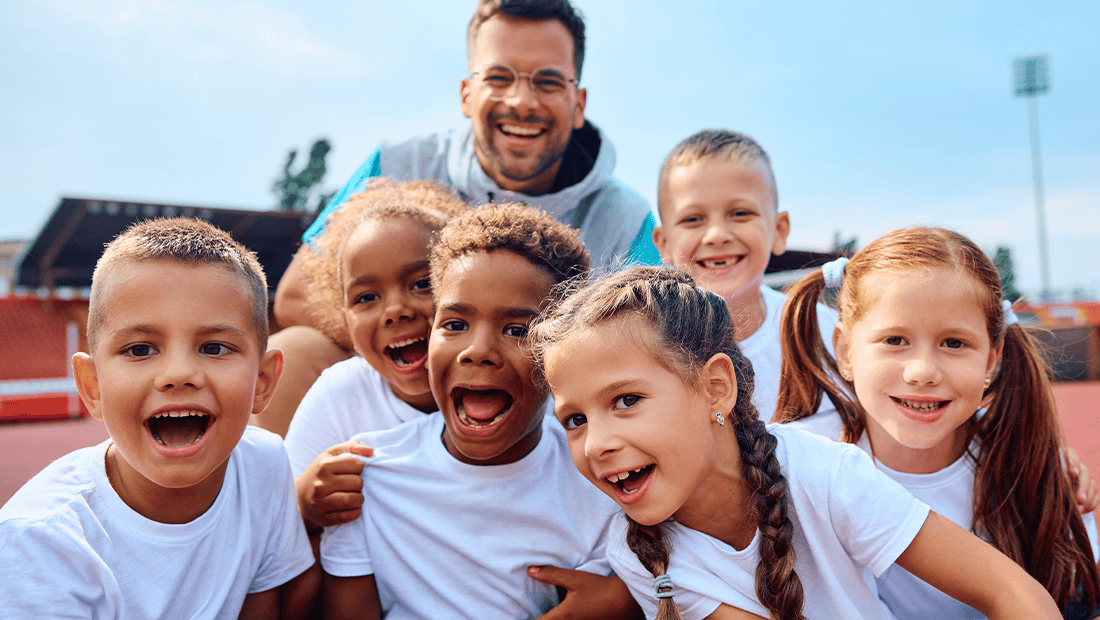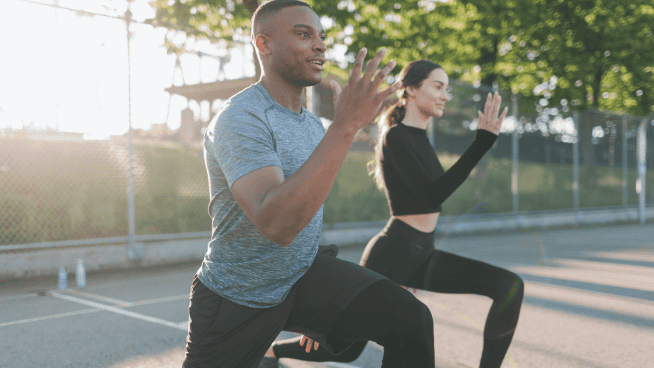5 Tips for Better Basketball Ball Control
Basketball ball control is an important skill to teach. The ability to dribble the basketball well is critical at every level of the sport. But it’s a skill that can be challenging for some athletes to learn. Here are several concepts to improve your ability to control basketball.
Fingertip control
When dribbling, your fingertips control the basketball. Many beginners make the mistake of slapping the ball with their palms. This frequently results in the ball being hit too hard, and it means they don’t have good control over the ball.
One exercise can be done to teach this concept.
- Pick up the basketball and hold it in front of you.
- Keeping your hands close together, toss the ball back and forth.
- As you do this, focus on keeping only your fingertips in contact with the ball.
- Once you get comfortable, lift your arms straight up until they are over your head. As you lift your arms up, continue to toss the ball back and forth using your fingertips.
- Now move down until the ball is level with your knees, continue tossing it back and forth using your fingertips.
In addition to teaching the concept, this is a great warm-up drill.
Ball Awareness
Basketball players must develop an awareness of where the ball is in space without needing to look at it. This is important because in addition to dribbling the ball, they need to read the defense, react to it and take advantage of opportunities the offense creates. This skill is also difficult for beginners to develop.
One exercise to improve this skill involves holding the basketball and making circles with it around your body.
- Starting at your waist, make the ball travel around your waist in a big circle without letting it touch your body.
- Make circles in both directions.
- Now do it without looking at the ball.
- As you get comfortable with this, continue making circles but move the ball down your legs until you reach knee height.
- Now make a figure eight around your knees.
- Remember to do this drill in both directions!
This is another great warm-up drill.
Dribble Progressions
I like to spend a lot of time dribbling in place. This allows me to get a good look at what my athletes are doing with the dribble. One mistake that many beginning players make is to allow a lot of movement from their wrist while dribbling. This results in a really ineffective dribble. Athletes should be encouraged to keep their wrist neutral and push down on the ball.
Start off by dribbling in place and looking at the ball. Dribble with your preferred hand, then switch hands. After that, look up at a point in front of you. Progress to looking up at the coach. Next, dribble the ball from one hand to the other with your eyes down, eyes to the front, and eyes up, in a progression. Finally, dribble the ball from in front of your body to a point just behind you with the same eye progressions.
Moving With The Ball, React
As you become better with stationary dribbling, you need to realize that dribbling while moving down the court is a different skill, and you have to keep your eyes up to know what’s going on. To teach this skill, I have players face me and begin dribbling. I give them hand signals like walk toward me, walk backward, move to the right, move to the left, etc.
Point Guard Drills
Drills that focus on dribbling in isolation become boring after awhile, and athletes need to be able to see how they apply. One drill I like to employ, which also incorporates layups, is performed from half court.
Begin at half court on the left sideline facing the basket. Start dribbling with your right hand, move to the goal and make a layup. Rebound your shot, then dribble down the opposite sideline to half court. Repeat using your left hand. Eventually, you want to be able to execute this drill at a dead run and from a crossover dribble.
RECOMMENDED FOR YOU
MOST POPULAR
5 Tips for Better Basketball Ball Control
Basketball ball control is an important skill to teach. The ability to dribble the basketball well is critical at every level of the sport. But it’s a skill that can be challenging for some athletes to learn. Here are several concepts to improve your ability to control basketball.
Fingertip control
When dribbling, your fingertips control the basketball. Many beginners make the mistake of slapping the ball with their palms. This frequently results in the ball being hit too hard, and it means they don’t have good control over the ball.
One exercise can be done to teach this concept.
- Pick up the basketball and hold it in front of you.
- Keeping your hands close together, toss the ball back and forth.
- As you do this, focus on keeping only your fingertips in contact with the ball.
- Once you get comfortable, lift your arms straight up until they are over your head. As you lift your arms up, continue to toss the ball back and forth using your fingertips.
- Now move down until the ball is level with your knees, continue tossing it back and forth using your fingertips.
In addition to teaching the concept, this is a great warm-up drill.
Ball Awareness
Basketball players must develop an awareness of where the ball is in space without needing to look at it. This is important because in addition to dribbling the ball, they need to read the defense, react to it and take advantage of opportunities the offense creates. This skill is also difficult for beginners to develop.
One exercise to improve this skill involves holding the basketball and making circles with it around your body.
- Starting at your waist, make the ball travel around your waist in a big circle without letting it touch your body.
- Make circles in both directions.
- Now do it without looking at the ball.
- As you get comfortable with this, continue making circles but move the ball down your legs until you reach knee height.
- Now make a figure eight around your knees.
- Remember to do this drill in both directions!
This is another great warm-up drill.
Dribble Progressions
I like to spend a lot of time dribbling in place. This allows me to get a good look at what my athletes are doing with the dribble. One mistake that many beginning players make is to allow a lot of movement from their wrist while dribbling. This results in a really ineffective dribble. Athletes should be encouraged to keep their wrist neutral and push down on the ball.
Start off by dribbling in place and looking at the ball. Dribble with your preferred hand, then switch hands. After that, look up at a point in front of you. Progress to looking up at the coach. Next, dribble the ball from one hand to the other with your eyes down, eyes to the front, and eyes up, in a progression. Finally, dribble the ball from in front of your body to a point just behind you with the same eye progressions.
Moving With The Ball, React
As you become better with stationary dribbling, you need to realize that dribbling while moving down the court is a different skill, and you have to keep your eyes up to know what’s going on. To teach this skill, I have players face me and begin dribbling. I give them hand signals like walk toward me, walk backward, move to the right, move to the left, etc.
Point Guard Drills
Drills that focus on dribbling in isolation become boring after awhile, and athletes need to be able to see how they apply. One drill I like to employ, which also incorporates layups, is performed from half court.
Begin at half court on the left sideline facing the basket. Start dribbling with your right hand, move to the goal and make a layup. Rebound your shot, then dribble down the opposite sideline to half court. Repeat using your left hand. Eventually, you want to be able to execute this drill at a dead run and from a crossover dribble.

